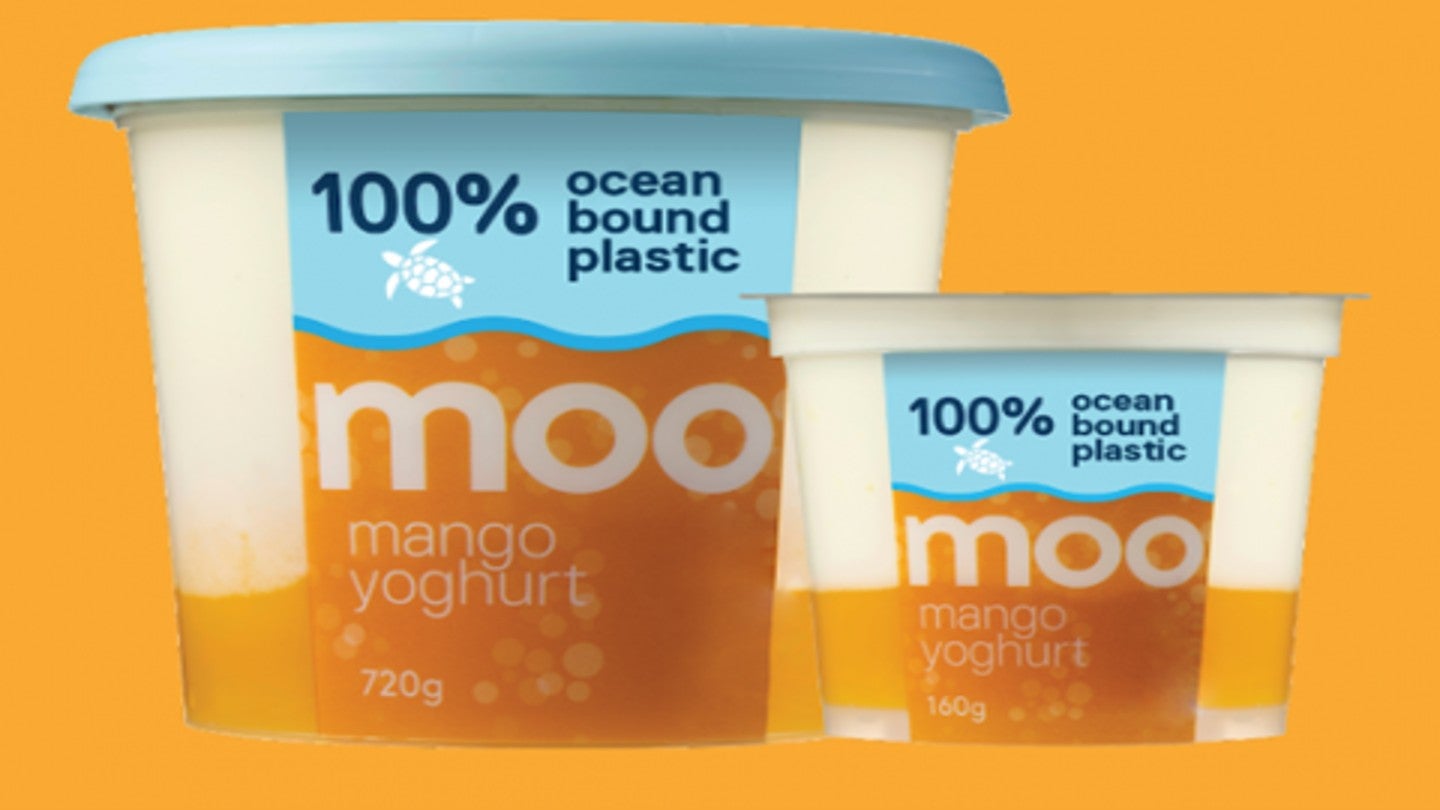
Australian yoghurt manufacturer MOO Premium Foods has agreed to remove all ‘ocean plastic’ claims from its business following an investigation by the Australian Competition and Consumer Commission (ACCC).
The ACCC has accepted MOO’s court-enforceable undertaking in relation to misleading representations on its yoghurt packaging.
In the undertaking, MOO admitted that the term ‘100% ocean plastic’ on its yoghurt tubs has ‘likely contravened’ the Australian Consumer Law (ACL).
The ACL is a national law, which, among other things, covers consumer rights and prohibits false or misleading representations.
MOO will now remove the ‘100% ocean plastic’ term from its yoghurt packaging, social media platforms, and website as a result of this decision.
The company will also publish corrective notices across its social media platforms and website, as well as carry out internal audits of the ‘ocean-bound plastic’ resin used in its packaging.
ACCC commissioner Liza Carver said: “Our investigation revealed that the plastic resin used in the manufacture of MOO’s yoghurt packaging was collected from coastal areas in Malaysia, and not directly from the ocean.”
According to the competition regulator, the disclaimers provided by the company were included on the top and back of the yoghurt tubs, which were not sufficient to justify the use of the term ‘100% ocean plastic’ in the headline.
Claims made by the yoghurt products manufacturer on its concerned packaging might have given the impression that the packaging used plastic waste obtained directly from the ocean while that was not the case, the ACCC added.
The packaging term was in circulation from November 2021 to 24 November 2023, which was the date of the undertaking.
Carver added: “Making false statements about a product’s environmental or sustainability qualities can mislead consumers, as well as putting the businesses making genuine claims at a competitive disadvantage.
“It is important that environmental and sustainability claims by businesses are correct as they are a key influence on consumer choices and what people spend their money on.”



